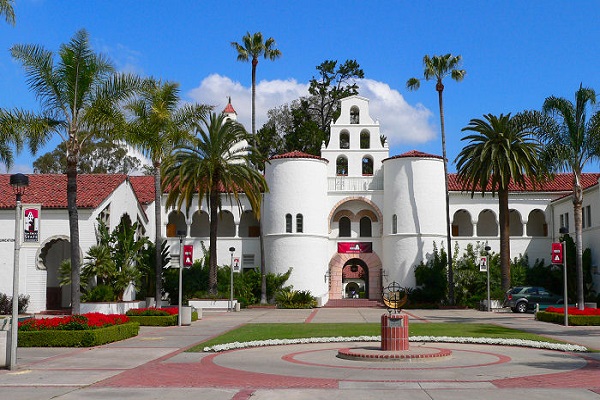San Diego State University: Grants to Fund Hologram Headsets, Health Professions Pipeline at SDSU Imperial Valley
San Diego State University Imperial Valley’s School of Nursing received another $3 million in awards in October. Two new federal and state grants will support an augmented reality nursing lab and a comprehensive high school to health professional workforce pipeline in Imperial County.
Both awards will also fund a five-year comprehensive community-focused initiative to expand innovative nursing education and improve the region’s health care equity, access and outcomes.
“These grants provide innovative workforce development strategies to undergraduate nursing students and local nurses and will expand our local workforce pipeline,” said Helina Hoyt, assistant professor, and associate director of the SDSU School of Nursing, Imperial Valley (SON, IV).
Immersive technologies
The federal grant, a three-year, $1 million award from the U.S. Department of Health and Human Services, provides immersive training to nursing students through augmented and virtual reality technologies in classrooms and regional medical centers along the U.S.-Mexico border.
“Students often report it is difficult for them to react in their practice environments when they don’t get a reaction from their patient-care mannequins,” said Andrea Sanchez, skills lab coordinator, and VITaL faculty fellow, SON, IV. “The use of virtual and augmented technologies is a game-changer and will allow students to receive immediate feedback, as well as experience in what it is like to take care of a ‘real’ patient.”
Imperial Valley nursing students will use Magic Leaps, a virtual simulation lab, and Microsoft’s HoloLens, augmented reality headsets. The headsets display a realistic, three-dimensional holographic patient, allowing students to interact fully with a virtual patient in the classroom. Other virtual programs include three-dimensional, life-sized anatomy holograms so students can examine everything from the human skeleton and nervous system to the gastrointestinal tract and other bodily systems with lifelike precision.
“The beauty of this immersive technology is that it can be manipulated to create a wide variety of scenarios to enhance learning in the classroom,” said Sanchez.
The immersive training project includes curriculum updates and student externships with 90 hours of clinical experience at two regional hospitals. In addition, the grant will fund four additional faculty instructors to expand enrollment in the new SDSU Imperial Valley BSN program.
Workforce pipeline
The second grant, a $2.5 million award from the California Health and Human Services Agency, will fund a five-year project that includes the development and implementation of a new comprehensive workforce pipeline to support and encourage underrepresented and disadvantaged high school students to pursue health careers in Imperial County.
“The Health Professions Pathway Program is a win-win for Imperial County,” said Hoyt. “Local talented youth interested in health professions can be mentored and offered local options for seeking a bachelor’s degree.”
Enhancing and expanding a culturally and linguistically advanced workforce, the project will focus on primary care, nursing, behavioral health, geriatrics, and oral and allied health.
“This ‘grow your own’ approach will help develop a sustainable healthcare workforce to care for the residents of Imperial Valley communities,” said Karen Macauley, professor and director of SDSU’s School of Nursing.
Macauley and Hoyt’s team built an extensive partnership network that includes collaborations with the Imperial County Office of Education, seven local high schools, the Imperial Valley Regional Occupational Program, Imperial Valley College, El Centro Regional Medical Center, and Pioneers Memorial Healthcare District.
“The School of Nursing is committed to addressing the nursing and health care profession shortages in Imperial County,” said Macauley. “This funding supports pipeline efforts, especially in local Imperial County high schools, through mentoring and other student services.”
A mentoring program, health career days, and other wraparound services including financial aid, academic advising and community outreach events, are scheduled over the next few years as part of the project.
Earlier in October, SDSU Imperial Valley’s School of Nursing also received a $5 million National Institutes of Health (NIH) award to establish a clinical research network and to address regional health disparities. The cooperative agreement grant between SDSU, SDSU Imperial Valley School of Nursing, and El Centro Regional Medical Center supports clinical research for five years.

